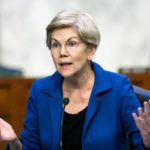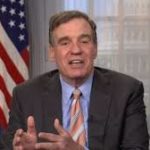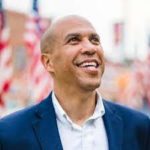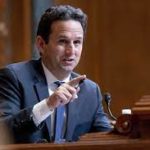Check out the website: https://lenspoliticalnotes.com Look at the recent Political Notes and Len’s Letters on the website:
December 31st , 2022 Len’s Letter #60 The Senate Leadership — working in the system as it is
Happy New Year. We will start the year with a 51-49 majority in the Senate. That is not a small matter when it comes to confirming judicial and senior administration nominations. If the Senate majority can figure out how to work with the slight Republican House majority, they can make progress for America. Some of that figuring out rests with the Senate leadership. With a Democratic caucus composed of 51 members, they have a dozen leaders. That seems like a lot, but the Senate if chock full of people who see themselves and who are national leaders. They take themselves seriously and so should we. Here is the leadership.

- Majority Leader Chuck Schumer (New York)
Chuck Schumer was reelected in 2022. It seemed like a quiet election and Schumer coasted to a 56.8 – 42.8 victory. Maybe, it was not as quiet as it seemed. Chuck Schumer spent $41 million on the election. His opponent spent a half-million.
No one suggests Chuck Schumer is anything other than a smart man. Seventy-two years old, he was born and raised in Brooklyn. He scored 1600 on his SATs, went to Harvard and Harvard Law School. He was elected to the New York State Assembly in 1974 filling the seat previously held by Stephen Solarz who had been elected to Congress. In 1980, he was elected to Congress, filling the seat that had been held by Elizabeth Holtzman, who ran unsuccessfully for the US Senate. In 1982 the possibility of a contest between Schumer and Solarz because of redistricting worried new York Democrats and did not materialize.
It is hard to realize now, but New York used to elect Republicans. MAGA Republicans would call those Republicans RINOs. In 1998, After defeating Geraldine Ferraro for the Democratic nomination for the US Senate, Chuck Schumer defeated the three -term incumbent Republican Al Damato. Chuck Schumer has not had a serious opponent since.
As Chair of the Democratic Senatorial Campaign Committee in 2006, Chuck Schumer was credited with the Democrats winning six seats. In 2016, after Harry Reid retired from the Senate, he was elected without opposition as Senate Minority Leader – the first New Yorker and the first Jew to serve as a Senate Party leader.
As a Senator, he focused on state-wide issues – preventing, for instance, the US Military Academy at West Point, NY from firing its custodial and maintenance staff and turning that work over to a Georgia company. He has had losses. As a member of the Gang of Eight, their proposed immigration reform was never considered in the House. With only 49 Senators, he could not block judges nominated by Donald Trump for the Supreme Court. Nor could he restore net neutrality that the FCC had eliminated.
He has been attacked for his statements. Republicans blamed him for the recession of 2008 because he criticized the recklessness of the banks IndyMac and Countryside. He was criticized for saying that if Kavanaugh and Gorsuch voted against abortion rights, they would “pay the price” and unleash a whirlwind. Was that a threat? Apparently, it was prescience. The Democrats relative success in 2022 has been attributed to a lasting anger at the Supreme Court for overturning Roe v Wade.

- Whip Dick Durbin (Ilinois)
Dick Durban is a Democrat from Downstate Illinois. Now 78 years old, he was born and grew up in East St. Louis, a Roman Catholic and the son of a “mixed marriage.” His dad was Irish-American; his mom was born in Lithuania. He went to a Catholic High School, Georgetown’s School of Foreign Service, and got a law degree from Georgetown as well.
Like many ambitious Illinoisians (Abraham Lincoln among them), he headed for Springfield, the state capital, to begin a law practice. He served as legal counsel to Lt. Governor Paul Simon and then to the Judiciary Committee of the State Senate. After an unsuccessful run for Lt. Governor, he was elected to Congress in 1982.
Redistricting had made the district that included Springfield more favorable to Democrats. Dick Durbin defeated the incumbent Paul Findlay while attracting a lot of resources from people who wanted the pro-Palestinian Findlay defeated. He ran for the US Senate in 1996 to replace the retiring Paul Simon and won by 15 points, carried, in part, by Bill Clinton’s Presidential reelection run coat tails. He quickly became part of the Senate leadership, appointed as an Assistant Whip in 1998, he was elected Whip in 2004. After being considered as a Vice Presidential candidate by Al Gore, he settled in as Whip and Chair or Ranking Member of the Senate Judiciary Committee. He did not contest Chuck Schumer for the leadership.
Beginning his second term in the Senate, Dick Durbin changed his view on prohibiting abortion. He insists the decision was a product of personal reflection after visiting a home for abused children in Quincy, Illinois and listening to the stories of two girls about to age out of the facility who talked about gang rape and incest. He remains personally opposed to abortion.
Durbin made one other change in position. In 2005, he began opposing sugar price supports, which he had previously favored. Otherwise, he had had consistent and, in some cases, strong views. Like Chuck Schumer, he was critical of banks before and during the 2007-2008 crisis. Like Chuck Schumer, he was a member of the Gang of Eight that sought immigration reform – particularly proposing the end of country caps. He has been an advocate of child care, of assault weapons prohibitions, and he opposed the Iraq War, suggesting that GW Bush was lying to Congress and the people. He compared Guantanamo Bay to Nazi atrocities and Soviet gulags. Eventually, he apologized to the soldiers who staffed Guantanamo, but not to the policy makers.

- Policy and Communications Chair Debbie Stabenow (Michigan)
Debbie Stabenow was born and grew up one hundred miles north of Lansing and East Lansing – the capital of Michigan and the home of Michigan State University respectively. Now 72, she came to East Lansing to go to college and stayed to get a degree from Michigan State in social work. She began her political career in 1974 while still in graduate school as a successful candidate for the Ingham County (Lansing) Board of Commissioners, running to prevent a nursing home from being closed. By 1977, she became chair of the Board of Commissioners and in 1978 she primaried the local state rep. She served as a state Rep until 1990 when she was elected to the State Senate. In 1994, she ran for Governor, came in second in the primary, and was chosen as the Lt. Governor candidate. The ticket was clobbered 61-38.
In 1996, Debbie Stabenow ran for the House of Representatives and ousted a Republican. In the House, she served on the Agriculture Committee. In 2000, she defeated the incumbent Republican Senator Spencer Abraham, winning the only close race for the Senate she ever had – 49.47% to 47.86% or by 66,000 votes out of 4 million plus. In the Senate, she continued her interest in agriculture, tied that interest to industry, and has been seen as an expert on the economy – an advocate for Michigan’s farmers and Michigan’s industry.
Debbie Stabenow has been distinguished for her opposition to the Iraq War, her support for immigration, and as the only Senator on a panel addressing income inequality who rejected the idea that those collecting welfare or unemployment benefits would prefer those benefits to working. She has been targeted by the NRA for her efforts to limit who could purchase guns – people who have been convicted of misdemeanors, for instance.
Debbie Stabenow became part of the Senate’s Democratic leadership in 2004, when she was elected secretary of the caucus. In 2006, Harry Reid asked her to replace Hillary Clinton as Chair of the Steering and Outreach Committee in order to create a conversation about policy. In 2011, she became Chair of the Agriculture Committee – a role central to her interest in the nation’s economy and to her capacity to reach beyond the urban and suburban base of Michigan’s Democratic Party. That interest also reflects her roots in rural Michigan.

- Steering Committee Chair Amy Klobuchar (Minnesota)
We know some of Amy Klobuchar’s story better than we know most Senators because she ran for President in 2020 and made a dent, even if she did not make the cut. Now 62, she was the granddaughter of Slovene immigrants on her father’s side. Her father was a sports writer and her mother a second grade teacher. A high school valedictorian, class secretary and treasurer, she went to Yale, interned for Vice President and Minnesotan Walter Mondale, and got her JD from The University of Chicago.
Amy Klobuchar started out as a corporate lawyer with no political expectations and worked at it long enough and successfully enough to make partner. A personal experience set her on the road to politics. She and her newborn were kicked out of a hospital within 24 hours of the baby’s birth – despite the fact that the baby had a rare condition that prevented swallowing. Amy Klobuchar testified before the Minnesota legislature which passed, in response, a bill guaranteeing mothers and newborns at least 48 hours in the hospital. A similar requirement became national law when Bill Clinton was President.
In 1994, Amy Klobuchar ran for District Attorney for the county that Minneapolis is a part. Not really driven for political success, she made clear she would if and did withdraw when the incumbent changed his mind and ran for reelection. She was elected to the position in 1998 and reelected in 2002 with no opposition. A prime candidate for the US Senate in 2006 when incumbent Mark Dayton announced he would not run, she won the general election with 58% of the vote. She won again in 2012 and 2018.
The 2020 presidential election was tougher for her. Amy Klobuchar had a high turnover rate among staffers. Interviews with some former staffers violated the “nice” expectations for a woman Senator. The former staffers criticized her for being cruel and abusive. Staffers and former staffers who contradicted that view could not make up for the first impression.
There may be something about that first impression that is a positive — her tough mindedness. Consider two of her now widely known experiences.
- Her parents divorced when she was 15. Her father’s drinking had been too much for her mother and for the family. Amy Klobuchar refused a relationship with her father until he stopped drinking. When he stopped, she rebuilt her relationship with him.
- During the Brett Kavanaugh hearings, Amy Klobuchar pushed Kavanaugh’s buttons. She quoted him saying he sometimes had too much to drink. She asked, did he ever drink so much he could not remember all or part of what happened? Kavanaugh almost lost the nomination by stating she was talking about a blackout. He asked if she had ever had a blackout. She told him to answer the question and asked if his answer was that a memory loss had never happened. He pressed her about whether or not she had had a blackout – “I’m curious if you have.” She brought the questioning to a close explaining that she does not have a drinking problem.
Was Amy Klobuchar cruel to her father? Was she cruel to Brett Kavanaugh. Or was she tough minded in the interest of her family, in one instance; tough minded in the interest of her country in the other?
Amy Klobuchar has had a legislative career that focused on business and consumers. She chairs the Judiciary Committee’s subcommittee on Anti-Trust and Consumer Rights. She has also written books. In 1986, while still practicing law, she published a book about the politics involved in the construction of the Metrodome sports stadium in Minneapolis. In 2015, perhaps as she began thinking about a presidential run, she wrote an autobiography. Most impressive, she wrote a 600+ page book about anti-trust. The New York Times review said:
Antitrust is an unusually arcane area of the law, not easily accessible to a wide public. In response to this gap and to provide a narrative backdrop to her current legislative efforts, Klobuchar has written “Antitrust: Taking on Monopoly Power from the Gilded Age to the Digital Age.” A history of antitrust policy may not sound like the most compelling raw material for a page turner. But the book is an impressive work of scholarship, deeply researched — it has over 200 pages of footnotes — highly informative and surprisingly readable in the bargain.
Her intelligence, toughness, and literacy are not bad qualities for a committee whose task is to take the product of meetings with constituent leaders and use the results to help set the policy agenda for the Senate.

- Conference Co-Vice Chair Elizabeth Warren (Massachusetts)
Elizabeth Warren was also a presidential candidate in 2020. We got to know a lot about her as well. Now 73 years old, she grew up an Oklahoman in an evangelical Protestant family. Her mom was at home. Her dad had been an army flight instructor during World War II and, until his heart attack prevented him from returning to his work as a salesman for Montgomery Ward. After the heart attack, her mother started work at the catalog department of Sears. Her dad became the maintenance man for an apartment building. And at 13, Elizabeth waited tables at her aunt’s restaurant. None of that prevented their car from being repossessed.
A star debater in high school, she won a scholarship to George Washington University. After two years, she married and moved to Houston where her new husband worked for IBM and she got a degree in speech pathology. She followed him to New Jersey and got pregnant. With a two year old in tow, she applied to and entered Rutgers Law School. Pregnant again, she graduated from law school in 1976. Practicing the kind of law that could be done at a kitchen table, she had been such a successful student at Rutgers, they offered her a teaching position for the 1977-78 academic year. In 1978, she divorced her husband and in 1980 married her current husband who was a member of the Rutgers Law School faculty.
She began a peripitatic life teaching at law schools in Texas and Michigan as well as at Rutgers. She developed an expertise in applying neoclassical economic theory to law. The emphasis on efficiency reflected a movement conservative outlook. Elizabeth Warren, focusing on bankruptcy, wanted to research what happened in practice. She began to revise her views of bankruptcy – initially coming to understand that one important cause of bankruptcy was an effort by parents to buy homes in good school districts for their children. Later, she and others suggested that medical debt caused 40% to 60% of bankruptcies – a position that economists have challenged. An early challenger suggested 20% was a better figure.
Raised as a political conservative, having conducted research that focused on the efficiencies of bankruptcy, she became a Democrat in the miid-1990s arguing that the Republicans were no longer principled in their approach to economics and, instead, favored large financial institutions. She particularly targeted large financial institutions in advocating for a Consumer Financial Protection Bureau.
By 2012, she had become so involved in providing advice that some saw as radical, she committed to run for the US Senate. She wanted to defeat Scott Brown, the fluke Republican successor to Ted Kennedy. Defending her advocacy for higher taxes for the rich, she argued that nobody got rich on their own. The wealthy moved their goods on roads paid for by the rest of us; employed workers educated at the expense of the rest of us, and lived in a society made safe through hiring police and a judicial system supported by the rest of us. She won her election, created the Consumer Financial Protection Bureau, and became an unusually active Senator. Most recently, the Boston Globe ran a story explaining how effective she has been in encouraging Joe Biden’s appointment of the kind of administrators she would want in an administration.

- Conference Co-Vice Chair Mark Warner (Virginia)
Sixty-eight year old Mark Warner is less colorful than the previous and unrelated Republican Senator John Warner who married a Mellon heiress and became wealthy instead of prosperous as a result. After his divorce John Warner became Elizabeth Taylor’s sixth husband. After they divorced, he was said to have had a romantic relationship with television personality Barbara Walters. The most notable aspect of Mark Warner’s marriage is that his wife (he has been married only once) nearly died from a burst appendix on their honeymoon.
Mark Warner became wealthy in his own right. The first in his family to go to college, he was George Washington University’s valedictorian despite working part-time for Senators Abe Ribicoff and Chris Dodd. He went on to get a JD from Harvard and to make his money in telecommunications early in the cell phone industry. With those resources, he involved himself in state politics, becoming chair of the state Democratic Party.
Mark Warner managed Doug Wilder’s successful campaign for Governor, served as chair of the Virginia Democratic Party, and then was elected governor himself in 2001, succeeding two Republicans. After completing his term limited four year term, during which, working with Democrats and Republicans, he oversaw a reform of the tax code, he looked like he might run for President in 2008. Instead he ran for the US Senate and won, gaining the endorsement of John Warner.
Mark Warner’s 2014 race was extremely close 49.1 – 48.3, an 18,000 vote difference, but his 2020 election was a win by 12 points. Described as a radical centrist, he worked toward finding bipartisan solutions. In the early 2010s he put a lot of effort into addressing the US debt, but finally left the bipartisan group when it was clear that a “grand bargain” was simply not achievable. Neither Harry Reid nor Republican leaders were ever convinced that such a bargain was possible.
Nevertheless, like John Warner, Mark Warner has been a kind of conservative touchstone. A conservative Democrat in this instance – one who wants his side to win. And to do that, when possible, without the other side losing.

- Outreach Chair Bernie Sanders (Vermont)
At 81, Bernie Sanders is a couple of months older than I am. He grew up in Brooklyn combining sports (basketball in elementary and middle school, track in high school), Jewish education (which he did not love), and socialism (which he did love). His father immigrated from what is now western Ukraine in 1921; his mother was born in the US of parents from Poland. He spent a year at Brooklyn College then transferred to The University of Chicago where he found the activities of socialist and progressive causes far more interesting than academic classes. In Chicago, as he did throughout his career, he minimized differences between and among left wing causes rather than exacerbate the ideological differences.
He returned to Brooklyn in 1963 after completing his BA, working at jobs that ranged from Head Start teacher to carpenter. In 1968, he left for Vermont and “the rural life” which, for him meant being a carpenter, a film maker, and a writer, often writing for the alternative publication the Vermont Freeman. A variety of alternative political groups were available to him. In the early to mid 1970s he ran for Governor and Senator for the Liberty Union Party consistently finishing third behind the Republican and Democratic candidates.
In 1980, he ran for Mayor of Burlington. Richard Sugarman, a friend, an Orthodox Jew, and a professor at the University of Vermont showed him how much better he ran in Burlington than elsewhere in the state – 12% of the vote instead of 6%. Progressive groups consolidated around his candidacy. Complacency kills campaigns and the incumbent mayor was not at all worried by Bernie’s 12%. Bernie Sanders 10 vote victory was a shock.
Bernie Sanders tenure as mayor was almost as shocking as his election victory. Bernie Sanders was an effective mayor. Instead of the previous mayor’s support of expensive waterfront condominiums, Bernie supported the creation of mixed use for the area – a park, other public spaces, plus some housing. By the time he decided to run for Congress, Burlington had earned a reputation for being among the most livable cities in the country and Bernie was counted as among the country’s best mayors.
In 1988, Jim Jeffords, still a Republican then, announced his run for the US Senate. Bernie Sanders ran second to the Republican Lt. Governor, 41-38. In 1990, Bernie won easily, 56-39. Running as an independent, he was able to consolidate the Progressive groups that might each have put up their own candidate.
In Congress, Bernie Sanders joined in the creation of a Progressive Caucus. Serving as if he were a Democrat, the caucus was composed primarily of liberal Democrats. Rolling Stone magazine called him the “amendment king.” He was rarely in a position to introduce legislation and gather the support of a likeminded majority. His proposals were too bold or too symbolic statements to be successful. He could, however, pick his spots and propose amendments that would gain a majority. His Patriot Act amendment, for instance, limiting the government’s authority to investigate individuals book buying and library borrowing habits passed the House. Unfortunately, it did not make it through the conference committee.
In 2006, Jim Jeffords, by then a Democrat, announced he would not run again. Bernie Sanders was the overwhelming favorite. He was endorsed by Chuck Schumer, then the Chair of the Democrats Senatorial Campaign Committee, Democratic Senate Leader Harry Reid, and former Vermont Governor and former Presidential candidate Howard Dean. You would think Bernie Sanders was the establishment candidate.
In the Senate, he remained an independent working with the Democrats. He continued his practice of submitting amendments that could gather a majority. Those who examine his voting pattern have suggested that, notwithstanding his description of himself as a Democratic Socialist, he has actually been a proponent of tax supported public services. His support for Medicare for All, for instance, used of the popular plan for providing medical services for the elderly as a vehicle for providing medical services to the entire population. No matter how popular Medicare was, expansion proposals were described by Republicans as “socialized medicine.”
In the early 1970s, it would have been unimaginable to think that Bernie Sanders, after collecting three or four or six percent of the vote for governor or senator would be a central figure for Democrats and the country. His job as Outreach Chair is to be a kind of liaison between Committee Chairs and the Leadership.

- Policy and Communications Co-Vice Chair Joe Manchin (WV)
If his grandfather had not changed his name, Joe Manchin would be Joe Mancini. The grandchild of Italian immigrants on his father’s side and Czechoslovakian immigrants on his mother’s side, the family became local merchants and politicians. His grandfather owned a grocery; his father a furniture store. Each of them was elected mayor. An uncle was a state Delegate and was later elected Secretary of State and State Treasurer.
Joe Manchin went to the University of West Virginia on a football scholarship, but was injured instead. He got an MBA in 1970, then returned home to work in the family business. He was elected to the House of Delegates in 1982 and to the State Senate in 1986. In 1988, he created a waste coal brokerage company which he turned over to his son to run when he was elected to state-wide office.
In 1996, he ran for Governor, but lost the Democratic primary to Charlotte Pritt. Pritt was the daughter of a coal miner, a former English teacher, college professor, and college administrator including time as head of the West Virginia Writing Project. She had lost the Democratic primary in 1992 to the incumbent Gaston Caperton, an opponent of collective bargaining. Strong union support was not enough to offset his 10-1 spending margin. In 1996, she edged Manchin by three points. Notwithstanding her membership in the NRA, Manchin had characterized her as anti-gun. In the general election Republicans falsely claimed she was “flaky” and had supported a bill that would teach first graders pornography and how to use condoms. She lost the election by 5 points.
Joe Manchin ran for and was elected Secretary of State in 2000, defeating Charlotte Pritt in the primary. He was elected Governor in 2004. The incumbent Democrat had withdrawn from the race after he was discovered having an affair with a West Virginia development department staffer. As serious as the affair was, the scandal brought home Wise’s identification as a member of the educated elite. She was born in Switzerland, educated at the University of Basel, and worked for large corporations before moving to West Virginia. Wise was educated at Duke, got his law degree from Tulane, and proposed and implemented progressive policies.
Joe Manchin was a West Virginia antidote to the elite. As governor, he was sued by Don Blankenship, CEO of Massey. His opposition to the what may have been the worst of the mine owners, to the supreme court justice supported by mine owners, and the bond issue they sought made Joe Manchin a popular governor, He won reelection in 2008 and ran for the US Senate in 2010.
He had promised not to appoint himself to the Senate if Robert Byrd died and, when the time came, he appointed someone who would not run for election. Joe Manchin announced his run for the Senate, won the Democratic primary, and defeated a Republican businessman.
Had Charlotte Pritt had more resources for her campaigns…. Had Robert Wise avoided scandalous behavior……. the West Virginia and national political world might have been different. What we have is Joe Manchin as a powerful Democratic Senator. In order to have communications about policy the Democrats need Joe Manchin speaking for the conservative wing of the Party. He has worked with Republicans on issues ranging from abortion, immigration, energy, and gun control. He voted to confirm Brett Kavanaugh to the Supreme Court. He has been a pivotal figure during the last two years. His vote was a necessity for Democratic proposals. He has opposed much of what Joe Biden and Chuck Schumer asked for; but far from everything. Without Joe Manchin’s support we might not have substantial spending on infrastructure or a financial commitment toward controlling climate change.

- Policy and Communications Co-Vice Chair. Cory Booker (New Jersey)
At 53, Cory Booker is eight years younger than Barack Obama. It is worth comparing the two distinguished African Americans. Both were athletes. Obama famously played high level pick up basketball throughout his presidency. Booker went to college on a football scholarship and played tight end. Both went to elite universities and law schools. Obama graduated from Columbia and Harvard law School. Booker graduated from Stanford and Yale Law School. Booker won a Rhodes Scholarship. Obama wrote an extraordinary memoir. Both grew up in middle class families away from the debilitating experiences of urban poverty. Obama’s mother was a white anthropologist. Booker’s parents were middle level Black IBM executives. Obama went to a posh, private high school. Booker’s family lived in the suburbs where he went to high school.
Both Cory Booker and Barack Obama met with initial obstacles to their political ambition. Barack Obama lost his first election to former Black Panther and popular incumbent Congressman Bobby Rush. Cory Booker lost his first attempt to become mayor of Newark against Sharpe James, a popular pol with a reputation for corruption.
Barack Obama elbowed his way to election as a State Senator. In his US Senate race, he benefitted from a Republican general election opponent who dropped out because of scandal and a last minute Republican opponent who he defeated with 70% of the vote. Cory Booker stayed in Newark, continued with social justice work, developed both national and local connections, and ran again. Sharpe James dropped out to remain in the State Senate, left the mayoral race to a former Deputy Mayor, while Booker spent $6 million and won the election with 72% of the vote.
When Barack Obama ran for president, Joe Biden made what has been identified as one of his top ten gaffes. He described Barack Obama: “I mean, you got the first mainstream African-American who is articulate and bright and clean and a nice-looking guy. I mean, that’s a storybook, man.” He would have said the same thing, if the occasion arose, about Cory Booker.
Cory Booker took control quickly, successfully suing to undo land deals that Sharpe James had made. A gang assassination threat before he took office led to quarrels about whether the State Police, County Sheriff’s office, and the prosecutor’s office should provide Booker with protection or Sharpe James’ Newark police. Proceeding with round the clock protection, Booker continued with his plans including an appearance at a gay pride event.
Cory Booker’s tenure as Mayor of Newark left the city with extraordinary stories of his personal intervention including an instance of saving a woman’s life during a house fire while incurring smoke inhalation and second degree burns himself. Crime reduction initiatives, support for public schools that were still under state control, and efforts to create employment opportunities had modest success. A boomlet of gentrification was not his goal and was not widespread.
Cory Booker argues that Newark turned the corner as a result of his tenure. It may well have. It has become something of a center for technology and for the arts. To genuinely thrive, Newark probably has to turn a few more corners.
Cory Booker has fit right in as a US Senator. He supported his fellow New Jersey Senator Bob Menendez when he was accused and tried for corruption. He supported Hillary Clinton’s 2016 run for the presidency. He was among the progressive Senators who organized efforts to oppose Donald Trump’s administrative and judicial nominations; taking the lead in opposing the nomination of Brett Kavanaugh to the Supreme Court.
Some suggest that he jeopardized his close relationship with the Jewish community because of his support for the Iran nuclear agreement. His relationship with the Jewish community is particularly distinctive. Tablet magazine described him as the Senate’s most Jewish non-Jew. At Oxford, he was co-president of the L’Chaim Society. At Yale, he was president of Chabad House. In another story, Tablet Magazine notes Corey Booker’s capacity to discuss the weekly parsha, to quote from Pirkei Avot. A headline says he “knows more Torah than you.”
The Senate Democrats have their committee to discuss policy within the Senate and with community leaders throughout the country. Wouldn’t you love to participate in those conversations with Michigan’s agriculture advocate Debbie Stabenow, West Virginia’s Joe Manchin, and new Jersey’s Cory Booker?

- Conference Secretary Brian Schatz (Hawaii)
Fifty year-old Brian Schatz is a newcomer to the Democratic leadership group. He and his twin brother were born in Ann Arbor Michigan to parents who moved to Hawaii when the children were two years old. His dad, Jewish and originally a Canadian, was a physician. In 1965, he was the first doctor to publicly criticize the Tuskegee syphilis experiments. The boys were sent to the Punahou School, the same private school Barack Obama attended. From there, Brian Schatz went to Pamona College in California, interrupted by a semester studying in Kenya.
After college, Brian Schatz returned home to teach at Punahou and to work at various non-profits, eventually becoming CEO of Helping Hands Hawaii. In 2010, he left that role to run for Lt. Governor and won the primary by 15 points. The Democratic ticket, led by Neil Abercrombie for Governor, won by 17 points. In 2012, when US Senator Daniel Inouye died, Governor Abercrombie appointed Brian Schatz to the Senate.
In 2014, Brian Schatz ran to complete the balance of Daniel Inouye’s term. He defeated Congresswoman Colleen Hanabusa, who had been Daniel Inouye’s choice to succeed him, by 1,782 votes. He went on to defeat the Republican, gaining 70% of the vote. Brian Schatz’s focus during the primary and the general election campaign was on addressing the climate crisis and supporting alternative energy. In the Senate, until passage of the Inflation Reduction (and Climate Change) Act, climate related legislation has not been possible. Schatz supported cost of living increases for veterans, health related issues including increasing the legal age for smoking to 21, and the expansion of telehealth services.
Brian Schatz was reelected with comfortable margins in 2016 and 2022.

- Outreach Vice Chair Catherine Cortez Masto (Nevada)
Catherine Cortez Masto is the daughter of a Las Vegas politician who became head of the city’s convention center and visitor authority – no small job in that tourist oriented city. Equally important, her dad, whose father immigrated from Mexico, was friendly with Harry Reid. She went to the University of Nevada, Reno, then earned a JD from Gonzaga in Spokane, Washington.
Now 58, she has remained in Nevada with the exception of a foray in Washington DC at the US Attorney’s office. At home, she practiced law, joined the governor’s staff of attorneys, and became his chief of staff. In 2003, the Chancellor of the University of Nevada named her as the Executive Vice President of the University. In 2006, she announced a run for Attorney General. She won 59-36 and did almost as well in 2010, winning 52-36.
Term limited, she, nevertheless chose not to run for Governor in 2014. Instead, two years later, she announced a run for the US Senate to replace Harry Reid, who endorsed her candidacy. She won the general election 47-45, a margin of about 26,000 votes. Her 2022 election was even closer, winning 48.8-48 – an 8,000 vote margin. She won 62% of Latino voters, 64% of young voters, and only 52% of women even though much of her campaign focused on protecting the right of women to an abortion. Serving in the Senate, she was more proactive on immigration than most colleagues – urging the ICE Director to clarify Department standards for dealing with pregnant women, proposing a bill to make DREAMERs eligible for federal loans, and another proposal to require ICE agents to get specific approval from a supervisor before taking an action in a sensitive area such as a school or a courthouse.

- President Pro Tem Patty Murray (Washington)
Seventy-two year old Patty Murray took herself out of active leadership to focus on her role as Chair of the Health, Education, Labor, and Pensions Committee as well as Chair of the Appropriations Committee’s subcommittee on Labor, Health and Human Services, Education, and Related Agencies Committee. In a Senate with a majority of Democrats, she will have a big role in shaping the domestic agenda.
She will, however, still have a place in the central leadership as President Pro-Tempore of the Senate. Third in line to become President, after the Vice President and the Speaker of the House, she is replacing Patrick Leahy of Vermont who is retiring. Ordinarily the most senior of the majority party fills this position, but, in this case, Patty Murray is the second most senior Democrat. Diane Feinstein, the most senior Democrat, declined the position.
A Thought
As I reviewed information about these Senators, I was struck by the number of close elections they had won. Bernie Sanders being elected mayor of Burlington, Vermont by 10 votes. Brian Schatz winning a primary for the US Senate by 1,700 votes. Catherine Cortez Masto being elected Senator by 8,000 votes. The losing candidates all accepted their loss.
Of all the bad things that Donald Trump has done, the very worst is his false claim that he won the 2020 election. The stability of the country rests on our trusting elections. The January 6, 2021 insurrection grew from Donald Trump’s false claims about the 2020 election.
Requests for recounts? Lawsuits seeking additional recounts? Where there are close elections, we should encourage recounts. We want to know who actually won an election. The most recent disputed Presidential election was in 2000. The Florida Supreme Court called for a state-wide recount to see who won the Florida presidential election. That was important because whoever won the Florida election, won the Presidency. Putting the very best face on it, the US Supreme Court opted for stability rather than knowing who actually won the election when they halted the recount in Florida. GW Bush won Florida by 537 votes.
By declaring, in effect, that who actually won did not matter, the US Supreme Court, in 2000, paved the way for Donald Trump’s false claims. Sad as it was, Al Gore accepted the decision.
TWO IMPORTANT RACES COMING UP
Special Election January 10, 2023 – Virginia State Senate, District 7
City Councilman Aaron Rouse
A Democratic win ensures a pro-choice majority in the Virginia State Senate.
Spring General Election – Wisconsin Supreme Court
County Circuit Judge Janet Protasiewicz
Nonpartisan primary February 23, 2023 – top two in the run off
Run Off April 4, 2023
Support Janet Protasiewicz.
Two Republicans and two Democrats will be in the primary. Janet Protasiewicz is the stronger candidate of the two Democrats. If she wins the primary and the run off, the Wisconsin Supreme Court will shift from 4-3 Republican to 4-3 Democrat, having a profound effect on issues such as abortion and redistricting.